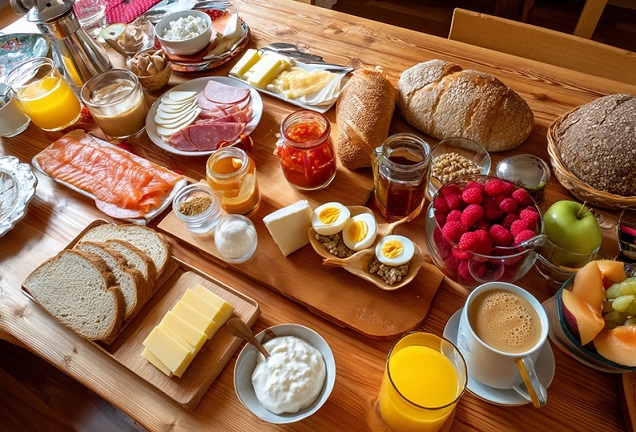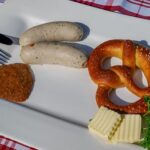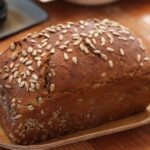
Forget quick bites and sugar-packed cereals. A traditional German breakfast—known as Frühstück—is a slow, hearty, and communal affair. Rich in bread, cheeses, and fresh ingredients, it sets the tone for a day rooted in nourishment, routine, and connection.
In this article, we’ll explore what makes a German breakfast special, its cultural roots, and how you can enjoy an authentic Frühstück at home.
What’s on the German Breakfast Table?
A classic Frühstück is centered on variety. Expect the table to be full of choices, with something to please every palate:
- Freshly baked rolls (Brötchen) – crispy on the outside, soft inside
- An assortment of breads such as rye, spelt, or whole grain. Explore types from our German Bread – The Heart of Germany’s Baking Culture.
- Cold cuts (Aufschnitt) like ham, salami, and liverwurst
- A selection of cheeses (Gouda, Emmentaler, cream cheese spreads)
- Sweet toppings such as fruit jams, honey, or Nutella
- Soft-boiled eggs
- Sliced tomatoes, cucumbers, or bell peppers
- Yogurt or quark with muesli and fruit
- Coffee, herbal tea, or fruit juice
Unlike a rushed grab-and-go meal, Frühstück is about grazing, layering, and sharing.
History and Cultural Significance
The German breakfast evolved from a simple farmer’s morning meal into a leisurely spread during the 19th and early 20th centuries. As industrialization progressed and routines became more regulated, breakfast solidified its role as the day’s first social moment.
Family or friends gather to enjoy the meal together—especially on weekends, when Sonntagsfrühstück (Sunday breakfast) becomes an elaborate ritual. It’s not uncommon to linger at the table for over an hour, sipping coffee and trying every combination of bread and toppings imaginable.
The Star Ingredient: German Bread
Bread is the foundation of both breakfast and broader German culinary tradition. With over 3,000 varieties of bread in Germany, it’s no surprise that Brötchen and sliced loaves play a central role in Frühstück.
Want to know which types pair best with sweet spreads or savory cold cuts? Visit our guide to our guide to traditional German breads to dive deeper into crusts, seeds, and slices.
Modern Twists on the Traditional Table
Though tradition holds strong, modern variations add global flair to the Frühstück spread:
- Avocado toast with poached egg
- Oat milk or almond milk options for coffee
- Gluten-free or low-carb rolls
- Vegan cheeses and meat substitutes
Still, the essence remains—multiple options, relaxed pace, and bread at the center.
Hosting Your Own German-Style Breakfast
Here’s how to set up an inviting Frühstück spread at home:
- Start with fresh bread and rolls – bake or buy high-quality varieties
- Create a balance – include both sweet and savory toppings
- Add eggs – boiled or scrambled
- Offer drinks – set a pot of coffee, herbal teas, and orange juice
- Set the table – small plates, butter knives, napkins, and plenty of time
Bonus: play some soft classical music in the background to match the cozy, deliberate pace of a real German breakfast.
Frühstück isn’t just about food—it’s a lifestyle. Rooted in tradition yet open to evolution, it brings people together with minimal fuss and maximum satisfaction. Whether you’re in Berlin or Boston, you can bring the best of German breakfast culture to your own table.
Curious about more mealtime customs? Explore Abendbrot – Germany’s Cozy Evening Meal Tradition or dive into Authentic German Recipes to fill your day with cultural flavor.







